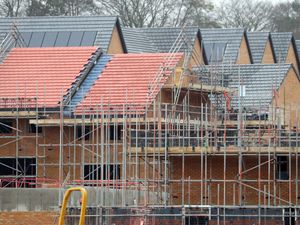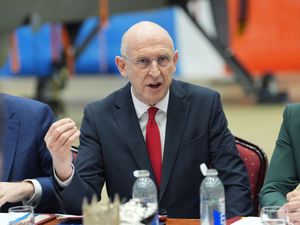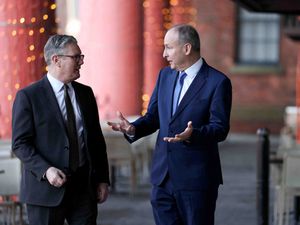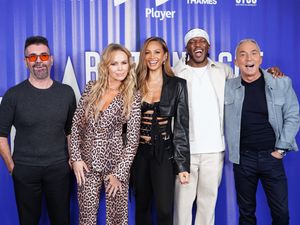Two doses of Pfizer/BioNTech vaccine produce a high number of antibodies – study
The new research also shows high confidence levels in the vaccine.
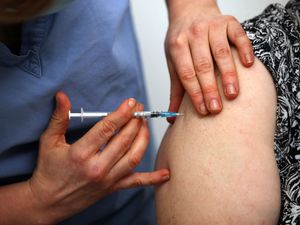
People of all ages who have had two doses of the Pfizer/BioNTech coronavirus vaccine produce high numbers of antibodies, new research suggests.
However, there is not enough data to say how protected someone may be from the virus based on a positive antibody test result, and it does not mean they are immune.
For the first time, the study captures participants who have received a Covid-19 jab, and also gathers insight into how different groups feel about vaccines.
More than 154,000 participants tested themselves at home using a finger prick test between January 26 and February 8, showing 13.9% of the population had antibodies either from infection or vaccination.
More than 17,000 of these participants had received at least one Covid-19 vaccine dose.
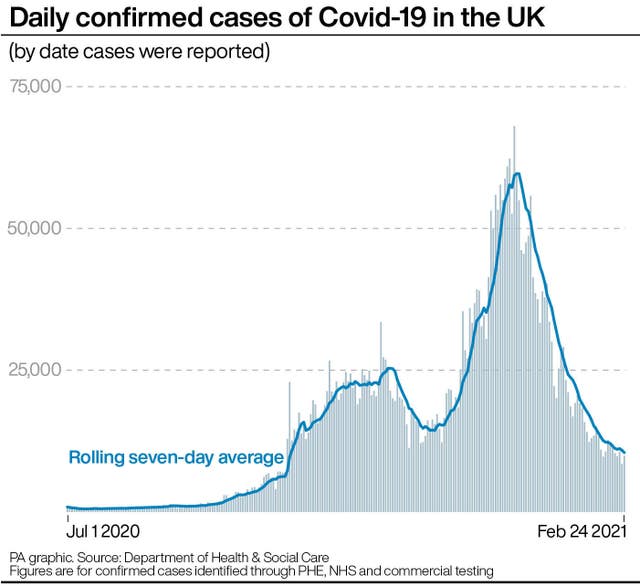
The data indicates that 87.9% of people over the age of 80 tested positive for antibodies after two doses of the Pfizer-BioNTech vaccine.
This rose to 95.5% for those under the age of 60 and 100% in those aged under 30.
The Imperial College London and Ipsos MORI study, React-2, also shows high confidence levels in the vaccine
More than 90% of those surveyed reported that they would be willing to accept, or had already had a vaccination.
But vaccine confidence varied by age, sex and also by ethnicity, highest in those of white (92.6%) and lowest of black (72.5%) ethnicity.
The three most commonly selected reasons for vaccine hesitancy were wanting to wait and see how the vaccine works, concern about long-term health effects, and worries about side effects.
Other common concerns shown in free text comments were around current and planned pregnancy, future fertility and specific allergies or comorbidities.
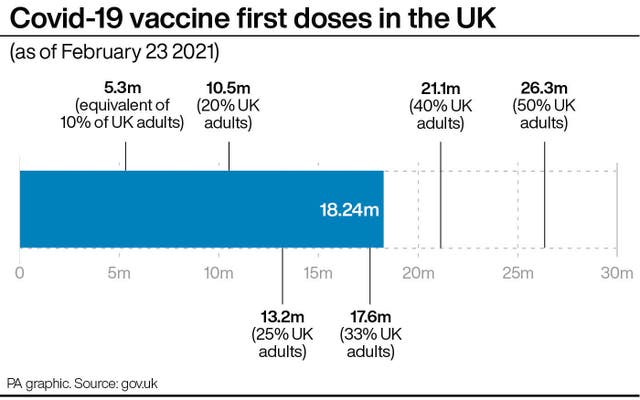
Professor Paul Elliott, director of the React programme, Imperial College London, said: “Overall there’s very high effectiveness in terms of antibody positivity from two doses of the BioNTech, and also from a single dose in people who have had prior infection, that much we know.
“And also, although there is some fall off in positivity with age, at all ages we get that very good response to two doses of the vaccine.
“And in terms of the confidence in the vaccine, it’s very, very high, although there are some groups where it’s a bit low, and that includes some ethnic minority groups and some younger people.”
Antibody prevalence in unvaccinated people remains highest in London (16.9%), and in people of black (22.1%) and Asian (20%) ethnicities, and those aged 18-24 years (14.5%).
For individuals who received a single dose of the Pfizer/BioNTech jab after 21 days, the proportion testing positive for antibodies was 94.7% in those under 30, ranging from 73.7% at 60 to 64 years to 34.7% in those aged 80 and over.
And in those who had previously had confirmed or suspected Covid-19, 88.8% were testing positive for antibodies, according to the pre-print study which has not yet been peer-reviewed.
Health Secretary, Matt Hancock, said: “These findings shed more light on rates of antibodies across the UK and among different groups, as we continue to strengthen our understanding of Covid-19.
“It is fantastic to see over 90% of people surveyed would accept or had already accepted a vaccine, as we continue to expand the rollout.
“I urge anyone who has been invited for a vaccine to book an appointment.
“And while we are seeing rates of the virus gradually decline it is important we all hold our resolve and follow the rules as we deliver on our cautious but irreversible approach to easing lockdown.”
Researchers say the findings on antibody response following a single dose align with existing research that suggests those aged over 80 take longer to develop a response to infection and the immune response is not as strong.
Antibodies are just one component of the body’s immune response produced by Covid-19 infection or vaccination.
Vaccines also induce T-cell related protection, independent of antibody production.
Scientists say T-cell responses may vary significantly between vaccines and may be particularly important in influencing duration of protection.
The Joint Committee on Vaccination and Immunisation (JCVI) noted that in Pfizer’s clinical trial, protection against coronavirus was very high (89%) between 14 and 21 days after vaccination, despite very low levels of antibodies measured at the same time.
This suggests that early antibody response does not correlate with clinical protection, researchers say.
Professor Helen Ward, lead author for the React study of population prevalence, said: “Our findings suggest that it is very important for people to take up the second dose when it is offered.
“We know that some groups have concerns about the vaccine, including some people at increased risk from Covid-19, so it is really important that they have opportunities to discuss these and find out more.”


